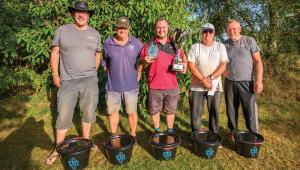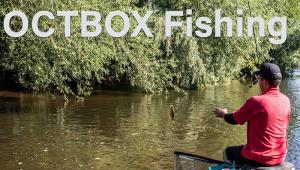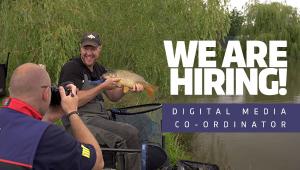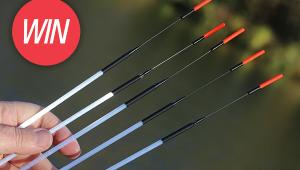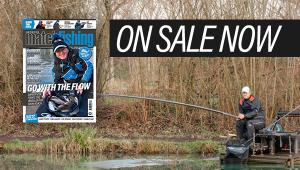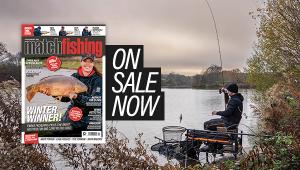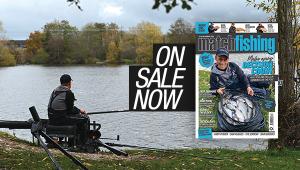Trust Respond To Funding Criticism
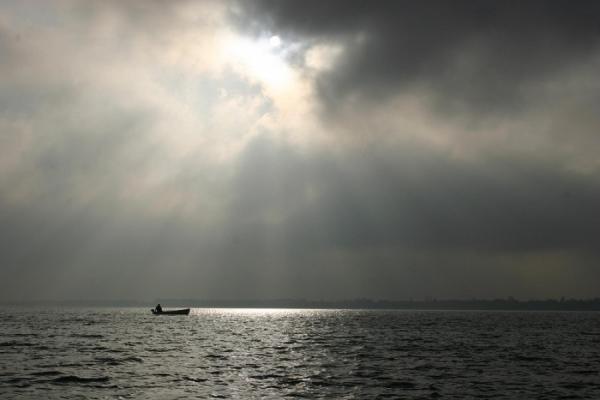
Anging Trust hit back at critics.
The Angling Trust has hit back at critics, who slammed the £1.8m funding package secured for angling from Sport England. The amount of funding each sport received was announced on Monday, with angling ranking 35th out of the 46 sports awarded funding, despite being among the country’s largest participation sports.
In a letter to DHP founder, David Hall the Angling Trust’s Chief Executive, Mark Lloyd defended the Trusts efforts. He commented: “The award of £1.8m to angling for the next four years is welcome news, because without a lot of hard work and innovation, it might well have been nothing. It’s true that this award is much less than other sports will receive over the same period. Angling is not an Olympic sport and we still have some way to go before we can convince Sport England to increase our funding more than they have already.
Let me explain the process for bidding for this funding.
Early this year, Sport England was told by its sponsoring department, the Department of Culture, Media and Sport, that the key aim of the 2013-2017 funding cycle would be to increase weekly participation. Whether the sport takes an hour or less and could be undertaken during a weekday lunch break or dark evening, such as swimming or running, or whether the activity took a longer time such as angling, all sports are being treated the same. Therefore our plans had to focus on this narrow objective and they made it very clear that unless we did so, we would get no money at all.
Because angling is generally pretty time-consuming, and can be expensive, getting more people fishing once a week is quite a challenge. The good news for angling is that only a small proportion of anglers fish once a week, so there is lots of potential for growth! Our plans had to show that we could achieve Sport England’s objectives with all these constraints. We have therefore focussed our bid on making it easy and affordable for people to go fishing more often. This work will also help build our capacity to deliver other objectives, with funding from other sources.
During the bid process, Sport England told us to limit our bid to £1.5m and to focus our bid on increasing angling participation among older anglers and anglers with disabilities. This was despite our initial bid being significantly larger and including programmes aimed at children and young adults. It should also be noted that £1.5m would have been a reduction in the last four years’ level of funding, which was a position we did not wish to be in. Our final bid was therefore quite bold, because it was pitched at £2.35m with a fall back bid of £1.5m. The outcomes in the £2.35m bid were in line with Sport England’s indicated aspirations, whereas the smaller bid significantly reduced those outcomes. The early feedback from Sport England was positive and they welcomed our approach. As we now know, we were partly successful in increasing the funding, but unfortunately not to £2.35m. However much we might have got, the funding would have to be spent on increasing the frequency of angling participation and be targeted at the older age groups.
However, this funding from Sport England is only part of the package. We have been working over the past year to develop a National Angling Strategy – Fishing For Life – which aims to prepare the ground for new funding from the Environment Agency and others to support growth of angling participation among other age groups and to recruit new anglers. When we put all this together, it becomes an integrated approach to getting more people going fishing more often, which is what we are all about.
With regards to our national teams, the message is clear: Sport England simply will not fund elite angling at this time. Until they change their position on funding our elite anglers, our teams will have to continue to rely on self-funding and the limited sponsorship that we have been able to secure to support them. To this end, we intend to review our domestic competitions across all three disciplines to see if any funds can be made available from those competitions to help support our national teams.
So, to secure these funds is a major achievement given the constraints imposed by the government and its funding agencies. But we will keep battling to win more funding from a wide range of sources to support angling in all its forms, for all age groups. With all these funders, the reality is that we have to dance to their tune. I think we have done a very good job to secure this support in the current climate.”
The Angling Trust has hit back at critics, who slammed the £1.8m funding package secured for angling from Sport England. The amount of funding each sport received was announced on Monday, with angling ranking 35th out of the 46 sports awarded funding, despite being among the country’s largest participation sports.
In a letter to DHP founder, David Hall the Angling Trust’s Chief Executive, Mark Lloyd defended the Trusts efforts. He commented: “The award of £1.8m to angling for the next four years is welcome news, because without a lot of hard work and innovation, it might well have been nothing. It’s true that this award is much less than other sports will receive over the same period. Angling is not an Olympic sport and we still have some way to go before we can convince Sport England to increase our funding more than they have already.
Let me explain the process for bidding for this funding.
Early this year, Sport England was told by its sponsoring department, the Department of Culture, Media and Sport, that the key aim of the 2013-2017 funding cycle would be to increase weekly participation. Whether the sport takes an hour or less and could be undertaken during a weekday lunch break or dark evening, such as swimming or running, or whether the activity took a longer time such as angling, all sports are being treated the same. Therefore our plans had to focus on this narrow objective and they made it very clear that unless we did so, we would get no money at all.
Because angling is generally pretty time-consuming, and can be expensive, getting more people fishing once a week is quite a challenge. The good news for angling is that only a small proportion of anglers fish once a week, so there is lots of potential for growth! Our plans had to show that we could achieve Sport England’s objectives with all these constraints. We have therefore focussed our bid on making it easy and affordable for people to go fishing more often. This work will also help build our capacity to deliver other objectives, with funding from other sources.
During the bid process, Sport England told us to limit our bid to £1.5m and to focus our bid on increasing angling participation among older anglers and anglers with disabilities. This was despite our initial bid being significantly larger and including programmes aimed at children and young adults. It should also be noted that £1.5m would have been a reduction in the last four years’ level of funding, which was a position we did not wish to be in. Our final bid was therefore quite bold, because it was pitched at £2.35m with a fall back bid of £1.5m. The outcomes in the £2.35m bid were in line with Sport England’s indicated aspirations, whereas the smaller bid significantly reduced those outcomes. The early feedback from Sport England was positive and they welcomed our approach. As we now know, we were partly successful in increasing the funding, but unfortunately not to £2.35m. However much we might have got, the funding would have to be spent on increasing the frequency of angling participation and be targeted at the older age groups.
However, this funding from Sport England is only part of the package. We have been working over the past year to develop a National Angling Strategy – Fishing For Life – which aims to prepare the ground for new funding from the Environment Agency and others to support growth of angling participation among other age groups and to recruit new anglers. When we put all this together, it becomes an integrated approach to getting more people going fishing more often, which is what we are all about.
With regards to our national teams, the message is clear: Sport England simply will not fund elite angling at this time. Until they change their position on funding our elite anglers, our teams will have to continue to rely on self-funding and the limited sponsorship that we have been able to secure to support them. To this end, we intend to review our domestic competitions across all three disciplines to see if any funds can be made available from those competitions to help support our national teams.
So, to secure these funds is a major achievement given the constraints imposed by the government and its funding agencies. But we will keep battling to win more funding from a wide range of sources to support angling in all its forms, for all age groups. With all these funders, the reality is that we have to dance to their tune. I think we have done a very good job to secure this support in the current climate.”
- Log in or register to post comments
LATEST VIDEO
